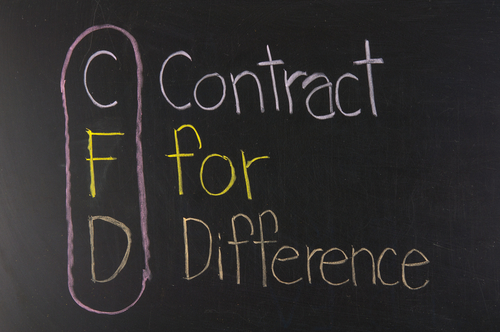There are several surprising facts about CFDs that make these derivatives products an attractive way of trading. In this article, we have compiled a list of 25 interesting facts about CFDs that you need to know.
- History
CFDs have been in the market since 1990s. They were originally developed in London as a type of equity swap traded on margin.
- Daily turnover
Currently, CFDs account for approximately 25 percent of the daily turnover on the London Stock Exchange. The turnover sometimes reaches 50% on certain days.
- CFD brokers
All CFD brokers are not the same. Each comes with different commission rates, financing rates, trading platform and customer service. Also, each broker handles dividends differently. These are some of the factors to consider when opening a CFD account.
- CFD trading account
A single CFD trading account can give you access to a wide range of financial markets. You don’t need to open a separate account to trade on spread bets, shares, stocks, forex or commodities.
- Trade in rising or falling markets
With CFD, you can trade Short or Long. A Short Trade is when you sell a financial product in the expectation that its price will fall and later to purchase it back at a cheaper price. A Long Trade is when you purchase a product with expectation that its price will increase.
- No stamp duty
When trading CFDs, you can make a significant amount of money because there is no stamp duty to eat into your profits. You can save up to 0.5% compared to a traditional share purchase.
- Tax is paid
CFDs are taxable; something many people don’t know is an advantage. How? If CFD profits are taxed, this means that even losses are offsettable against tax.
- Trading on margin
With CFDs, the Initial Margin (percentage of the opening position) is low compared to stocks which require you to come up with a big percentage of the opening position.
- Length of a position
Many people think that when trading on CFDs, they must take a long position. This is not true. Just like when you short stocks, you can also short CFDs.
- CFD commissions
CFD commissions are based on the number of shares or stocks you control. The margin of your investment is not taken into consideration. This is actually one of the downsides of trading CFDs.
- Overnight financing costs
Because you are buying on margin, CFDs attract overnight charges. If you have a short position on a CFD, then you stand to make good money and vice versa.
- Cost efficient
CFD commissions are usually very competitive. Unlike spread betting where spread bet brokers come up with their own dealing prices, CFDs has the same bid offer.
- Leverage
When trading CFDs, the potential returns are very high. For instance, you can use £10k to trade up to £100k in stock.
- Stop loss
If you are trading CFDs and your position moves against you, you could incur very large losses. You need to place a stop loss to magnify losses. This is one of the ways of minimizing risks.
- Long-term investors
CFDs are less suited for you if you are a long term investor. If you operate a CFD account for a long period, you will incur increased costs associated with account operation. If you are planning to hold it for long, it is beneficial to buy the underlying asset.
- Rights of a trader
As an investor, you don’t have right such as voting rights.
- Classification of CFD clients
FSA, which is the financial regulator, requires all CFD trading providers to classify their clients based on factors such as age, general trading experience, and market knowledge. This allows providers to gauge whether you are qualified to trade on margined products before you open an account.
- CFDs on non-share markets
It is estimated that more than 90% of all CFD trading is done on shares. However, some top brokers will offer them on the larger stock indexes such as Nasdaq, Dow Jones and FTSE 100.
- Trading margined products
If you are a beginner, CFDs are not for you. They need a trader with experience. In fact, trading on spread bets is one of the best ways to get experience before you trade on margined products.
- CFDs and Dividends
If you hold a long CFD position until the date that share is ex-dividend, you will qualify to receive dividend income which can go up to 90 percent. You will receive the dividend income several weeks after the ex-dividend. For example, let’s say an ex-dividend date of a certain industry is on June 1st. If you happen to have held shares up to this date but you decided to sell them on June 5th, you will still qualify for dividends.
- Risk Management Facilities
There is a higher risk involved when trading on margin. Because of this reason, top CFD providers like CMC Markets offer a comprehensive list of facilities to manage such risks. These include Stop Loss and Limit Order Facilities. Below is an image of the company’s trading platform
- Hedging
If you want to protect your long-term holdings against variable market conditions, you can use a CFD.
- Pairs Trading
When one industry is undervalued compared to another, you can use CFDs to long trade on the cheaper stock while you short trade on the expensive one.
- Commission free CFD brokers
Not all brokers ask for commissions. There are several CFD brokers that don’t charge any commission. Instead, they use their internal market markers to determine the dealing price that they offer to traders.
- CFDs don’t expire
Spread bets, options and futures expire but CFDs don’t.

